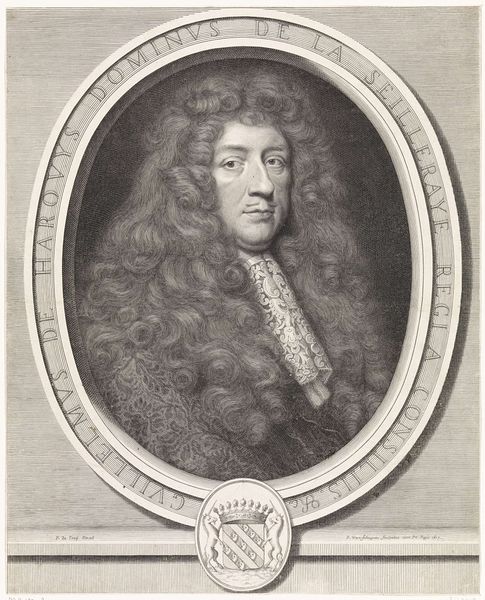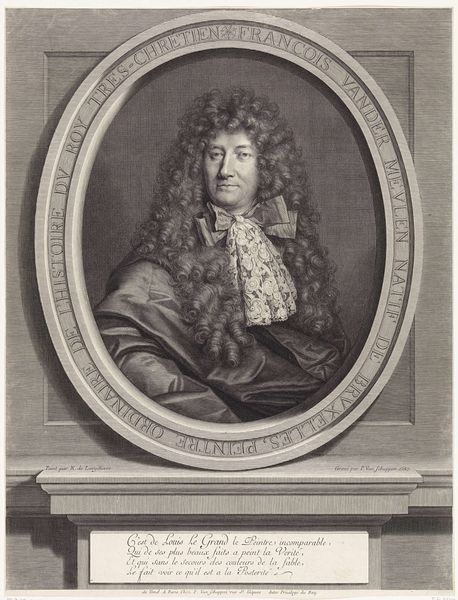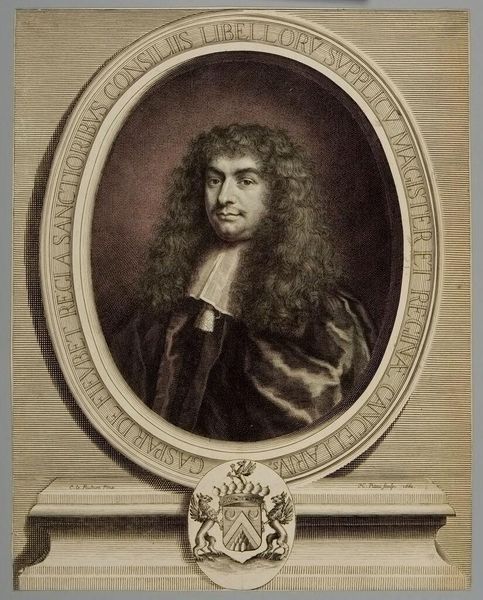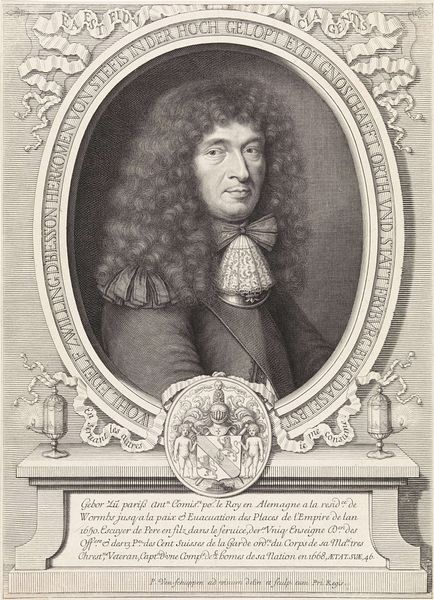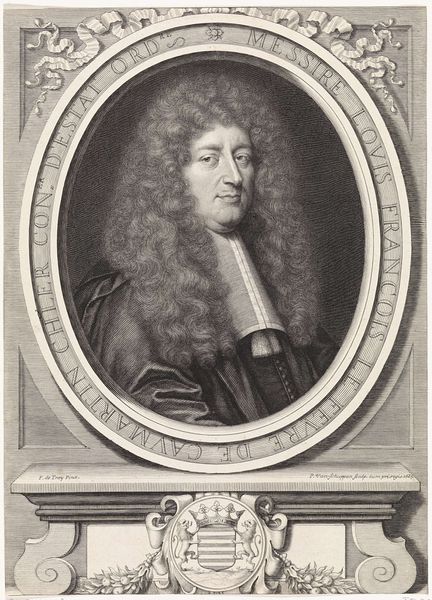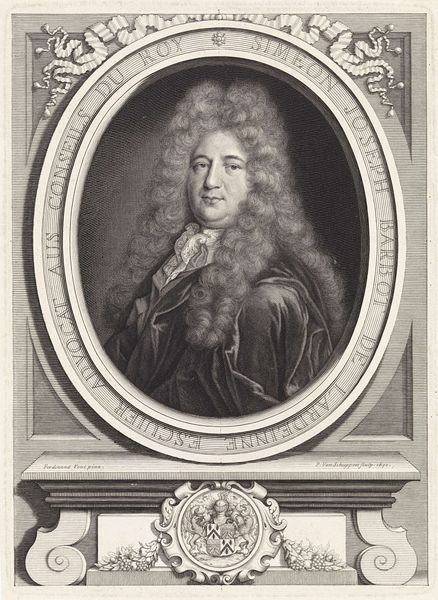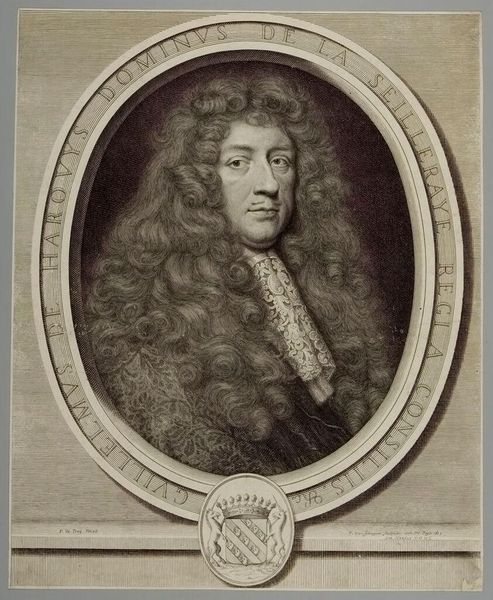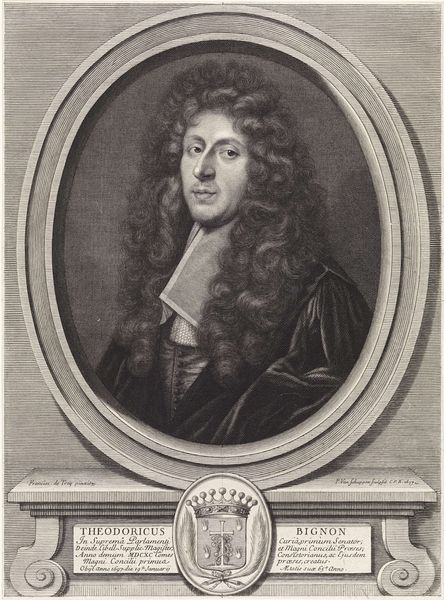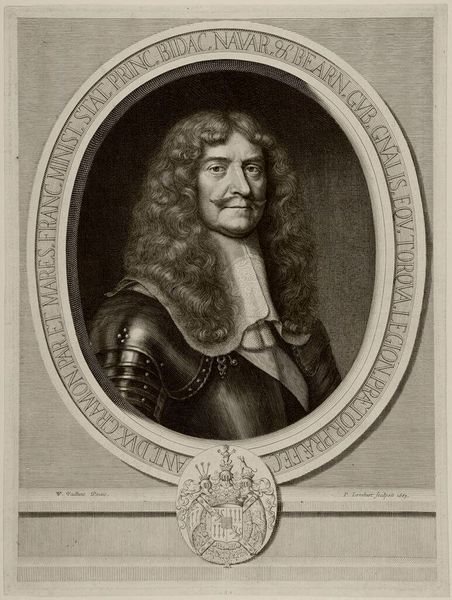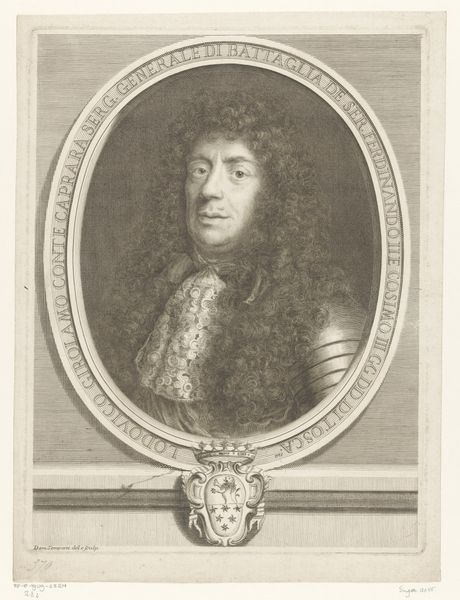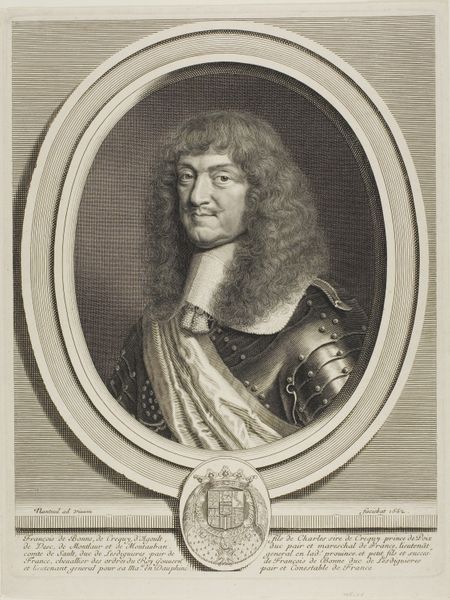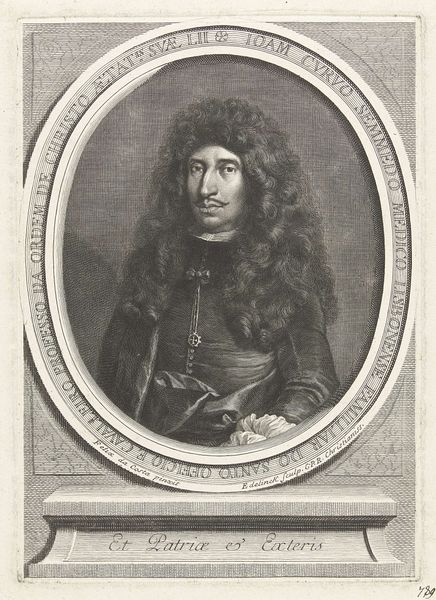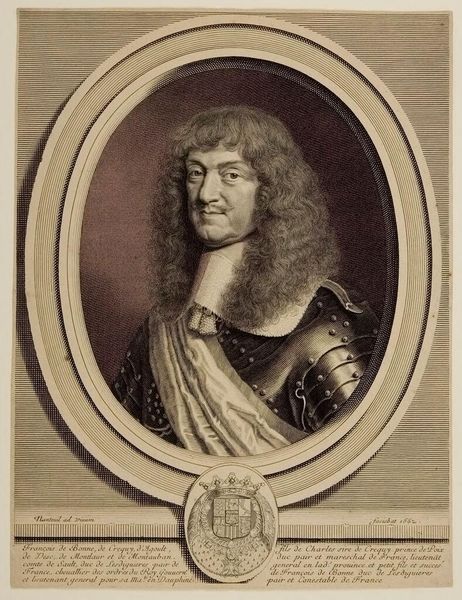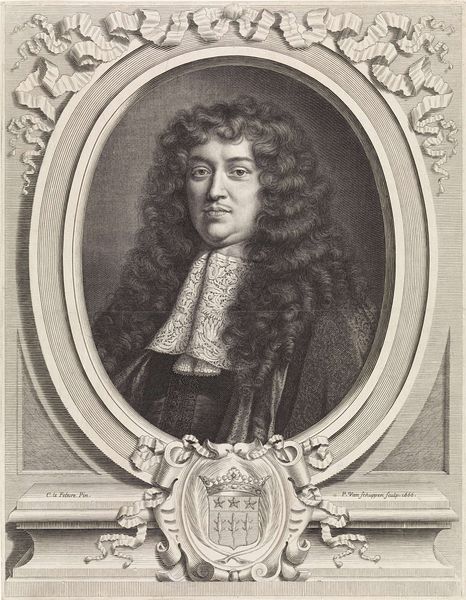
Portret van Paul-Armand Langlois de Blancfort, maître d'hôtel van Lodewijk XIV, koning van Frankrijk 1675
0:00
0:00
pietervanschuppen
Rijksmuseum
engraving
#
portrait
#
baroque
#
history-painting
#
engraving
Dimensions: height 346 mm, width 267 mm
Copyright: Rijks Museum: Open Domain
This is Pieter van Schuppen’s engraved portrait of Paul-Armand Langlois, made in the Netherlands, likely in the latter half of the 17th century. Langlois held the prestigious position of maître d'hôtel to King Louis XIV of France, and the print encapsulates the codes of status and power in that era. Consider the elaborate wig, the fine lace collar, and the framing cartouche which includes Langlois’ coat-of-arms. These visual cues tell us much about the social hierarchy of the time. The image would have served to reinforce the subject's status and celebrate the cultural authority of the French court. The portrait reminds us that art making is tied to social and institutional structures. Engravings like this one helped circulate images of powerful figures, contributing to the construction of celebrity. Through careful historical research, including looking at court records and genealogical information, we can better understand the role of art in shaping social perceptions and power dynamics. The meaning of art is always contingent on its social and institutional context.
Comments
No comments
Be the first to comment and join the conversation on the ultimate creative platform.
